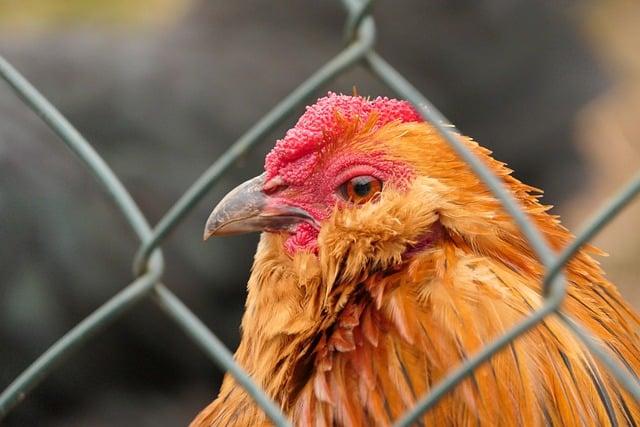Once upon a time in a cozy little town, a dog named Max discovered a delicious surprise in his owner’s kitchen: eggs! Each morning, he eagerly awaited his treat, wagging his tail in anticipation. His owner, curious about the benefits, learned that eggs are packed with protein, vitamins, and healthy fats, making them a nutritious addition to Max’s diet. However, moderation is key! Feeding Max an egg daily could lead to imbalances. So, while eggs can be a tasty treat, it’s essential to consult a vet to ensure Max stays healthy and happy.
Contents
- The Nutritional Benefits of Eggs for Dogs
- Understanding the Risks of Daily Egg Consumption
- Guidelines for Incorporating Eggs into Your Dogs Diet
- Expert Recommendations for Balanced Feeding Practices
- Q&A
The Nutritional Benefits of Eggs for Dogs
Eggs are a powerhouse of nutrition, offering a wide array of benefits that can significantly enhance your dog’s diet. Rich in **high-quality protein**, eggs provide essential amino acids that are crucial for muscle development and overall health. This protein source is particularly beneficial for active dogs or those recovering from illness, as it helps in tissue repair and growth.
In addition to protein, eggs are packed with **vitamins and minerals** that support various bodily functions. They contain Vitamin A, which is vital for maintaining healthy skin and vision, and B vitamins, which play a key role in energy metabolism. Furthermore, eggs are a good source of **selenium**, an antioxidant that helps protect your dog’s cells from damage and supports a healthy immune system.
Another notable benefit of eggs is their contribution to **healthy fats**. The yolk contains omega-3 and omega-6 fatty acids, which are essential for maintaining a shiny coat and healthy skin. These fats also support brain health and can help reduce inflammation, making eggs a great addition for dogs with joint issues or skin allergies.
Lastly, eggs are an excellent source of **choline**, a nutrient that is important for brain development and function. This makes them particularly beneficial for puppies and older dogs alike. By incorporating eggs into your dog’s diet, you can provide a balanced and nutritious treat that not only satisfies their taste buds but also supports their overall well-being.
Understanding the Risks of Daily Egg Consumption
When considering the daily inclusion of eggs in your dog’s diet, it’s essential to weigh the potential risks alongside the benefits. While eggs are a rich source of protein and essential nutrients, overconsumption can lead to health issues. One of the primary concerns is the possibility of an imbalance in your dog’s diet. Relying too heavily on eggs may result in deficiencies in other vital nutrients that are not present in eggs.
Another factor to consider is the risk of allergies or sensitivities. Some dogs may develop an adverse reaction to eggs, which can manifest as gastrointestinal upset or skin irritations. It’s crucial to monitor your dog for any signs of discomfort after introducing eggs into their diet, especially if they are consumed daily. If you notice any unusual symptoms, it may be wise to consult with your veterinarian.
Additionally, the method of preparation plays a significant role in the safety of egg consumption. Raw eggs can pose a risk of salmonella infection, both for your dog and for you, as the bacteria can be transmitted through handling. Cooking eggs thoroughly eliminates this risk, but it’s important to avoid adding any harmful ingredients such as salt, butter, or spices that could be detrimental to your dog’s health.
Lastly, moderation is key. While eggs can be a nutritious treat, they should not replace a balanced diet tailored to your dog’s specific needs. Incorporating eggs as an occasional supplement rather than a daily staple can help mitigate potential risks while still providing your furry friend with the benefits of this protein-rich food. Always consult with a veterinarian to determine the best dietary plan for your dog, ensuring their health and well-being are prioritized.
Guidelines for Incorporating Eggs into Your Dogs Diet
Incorporating eggs into your dog’s diet can be a nutritious choice, but it’s essential to do so thoughtfully. **Start with moderation**; introducing eggs gradually allows you to monitor your dog’s reaction. Begin with a small portion, such as half an egg, and observe for any signs of allergies or digestive issues. If your dog tolerates it well, you can slowly increase the amount, but always keep in mind that balance is key.
When preparing eggs for your furry friend, **opt for cooking methods that retain their nutritional value**. Scrambled, boiled, or poached eggs are excellent choices, as they eliminate the risk of salmonella while preserving essential nutrients. Avoid adding salt, butter, or other seasonings that may not be suitable for dogs. Remember, the goal is to provide a healthy treat, not to introduce unnecessary additives that could harm their health.
Consider the overall composition of your dog’s diet. **Eggs should complement their regular meals** rather than replace them. They are a great source of protein, fatty acids, and vitamins, but they should be part of a balanced diet that includes a variety of other nutrients. Consult with your veterinarian to determine the right amount of eggs based on your dog’s size, age, and activity level, ensuring that their dietary needs are met without overloading them with any single food item.
Lastly, keep an eye on your dog’s weight and health as you incorporate eggs into their diet. **Regularly assess their condition** to ensure they are thriving. If you notice any changes in their weight, coat quality, or energy levels, it may be time to adjust the frequency or quantity of eggs you’re providing. By being attentive and responsive to your dog’s needs, you can make eggs a delightful and beneficial addition to their diet.
Expert Recommendations for Balanced Feeding Practices
When considering the incorporation of eggs into your dog’s diet, it’s essential to consult with a veterinarian or a pet nutritionist. These professionals can provide tailored advice based on your dog’s specific health needs, age, and activity level. Regular check-ups can help ensure that any dietary changes, including the addition of eggs, align with your dog’s overall health plan.
In moderation, eggs can be a beneficial addition to your dog’s meals. They are a rich source of protein, essential fatty acids, and vitamins such as B12 and riboflavin. However, it’s crucial to balance their intake with other nutrients. Here are some key points to consider:
- Portion Control: Limit egg consumption to a few times a week rather than daily to prevent potential imbalances in their diet.
- Cooking Method: Always serve eggs cooked to eliminate the risk of salmonella and to enhance digestibility.
- Allergies: Monitor your dog for any signs of allergies or sensitivities when introducing eggs into their diet.
In addition to eggs, a well-rounded diet for dogs should include a variety of proteins, carbohydrates, and healthy fats. Incorporating different food sources can help ensure that your dog receives a complete range of nutrients. Consider mixing eggs with:
- Lean meats: Chicken, turkey, or fish can provide additional protein.
- Vegetables: Carrots, peas, and spinach can offer essential vitamins and minerals.
- Whole grains: Brown rice or oats can serve as a healthy carbohydrate source.
Lastly, always observe your dog’s reaction to new foods. If you notice any digestive issues or behavioral changes after introducing eggs, it may be wise to reduce their frequency or consult with a professional. A balanced approach to feeding, with a focus on variety and moderation, will help ensure your dog remains healthy and happy.
Q&A
-
Can dogs eat eggs every day?
Yes, dogs can eat eggs every day, but moderation is key. Eggs are a great source of protein and essential fatty acids, but too many can lead to an imbalance in their diet. Aim for a few times a week to maintain a healthy balance.
-
What are the benefits of feeding eggs to dogs?
Eggs provide numerous benefits for dogs, including:
- High-quality protein: Essential for muscle development and overall health.
- Rich in vitamins: Eggs contain vitamins A, B12, and riboflavin, which support immune function and energy levels.
- Healthy fats: Contribute to a shiny coat and healthy skin.
-
Are there any risks associated with feeding eggs to dogs?
While eggs are generally safe, there are some risks to consider:
- Salmonella: Raw eggs can carry bacteria, so it’s best to cook them.
- Allergies: Some dogs may be allergic to eggs, so monitor for any adverse reactions.
-
How should I prepare eggs for my dog?
The best way to prepare eggs for your dog is to:
- Cook them: Scrambled or boiled eggs are ideal.
- Avoid additives: Do not add salt, butter, or seasoning.
This ensures that your dog receives the nutritional benefits without any harmful ingredients.
while eggs can be a nutritious addition to your dog’s diet, moderation is key. Consult your veterinarian to ensure a balanced approach, keeping your furry friend healthy and happy. Remember, a well-informed pet owner is the best advocate for their dog’s well-being!

大家好,我是彼得潘,專業的手法身體治療師。我喜歡探索和研究各種主題,並透過與人工智慧的合作分享專業、實用、有趣的文章。我們定期進行人工審核,以確保內容的準確性。如果您發現文章中有任何不準確的地方,請隨時與我們聯繫,我們會及時糾正。您可以透過 [email protected] 與我們聯繫。



